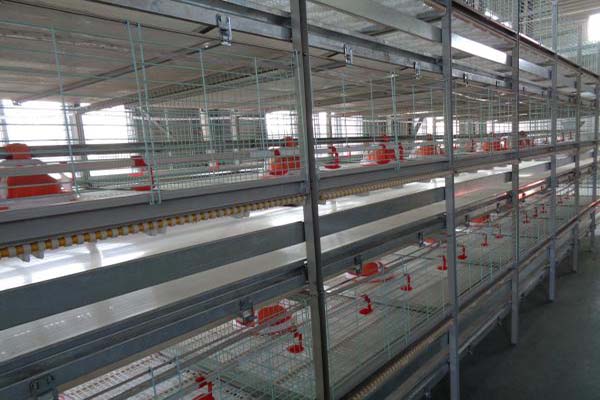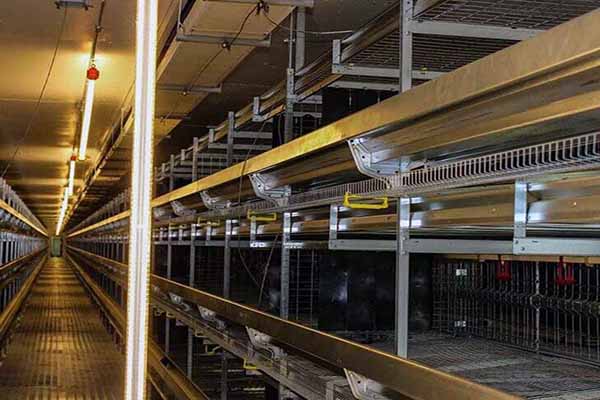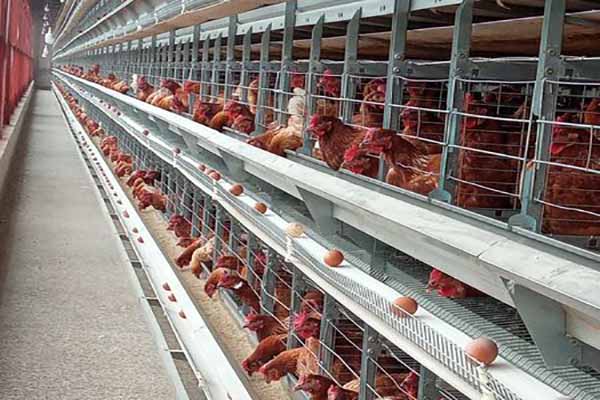Tanzania Environmental Control Equipment Selection Guide
Time : 2025-07-02
Effective environmental control is essential for the sustainability and productivity of agricultural operations in Tanzania. The right equipment can make a significant difference in the health and well-being of livestock, as well as in the efficiency of the farming process. This comprehensive guide aims to assist farmers and agricultural professionals in Tanzania in selecting the most suitable environmental control equipment for their needs.
Understanding Environmental Control in Agriculture
Environmental control in agriculture refers to the management of factors such as temperature, humidity, air quality, and other environmental conditions that can impact animal health and farm productivity. Proper environmental control can lead to improved animal welfare, increased production, and reduced costs associated with disease management.
Importance of Environmental Control Equipment
Environmental control equipment plays a crucial role in maintaining optimal conditions for animals. This equipment helps in regulating the internal environment of animal housing, which is critical for their overall health and well-being. The following types of equipment are commonly used in agricultural settings:
- Heating and Cooling Systems: These systems ensure that animals are kept at a comfortable temperature, regardless of the external climate conditions. In Tanzania, with its diverse weather patterns, a reliable heating and cooling system is essential.
- Humidity Control Equipment: Maintaining appropriate humidity levels is vital for preventing respiratory diseases and promoting animal growth. Humidity control systems help in reducing the risk of mold and mildew growth, which can be harmful to both animals and humans.
- Air Filtration Systems: These systems improve air quality by removing dust, pathogens, and other harmful particles from the animal housing environment. Clean air is essential for reducing the incidence of respiratory diseases and maintaining a healthy environment.
- Manure Management Equipment: Proper manure management is critical for maintaining good environmental hygiene. Manure handling equipment helps in collecting, transporting, and disposing of manure in an efficient and environmentally friendly manner.
Factors to Consider When Selecting Environmental Control Equipment
Selecting the right environmental control equipment requires careful consideration of several factors. Here are some key aspects to keep in mind:

1. Climate Conditions
The climate in Tanzania varies significantly, from arid in the north to humid in the south. When selecting environmental control equipment, it is crucial to consider the specific climate conditions of your region. For instance, in regions with extreme temperatures, a robust heating and cooling system is necessary.
2. Type of Livestock
Different types of livestock have varying environmental requirements. For example, poultry require specific temperature, humidity, and air quality conditions for optimal growth and health. It is essential to choose equipment that meets the specific needs of your livestock species.
3. Farm Size and Layout
The size of your farm and the layout of your animal housing facilities will influence the type and capacity of environmental control equipment required. Larger farms may require more extensive systems, while smaller farms may benefit from more compact, energy-efficient solutions.

4. Budget Constraints
Cost is an important consideration when selecting environmental control equipment. While investing in high-quality equipment is crucial for long-term sustainability, it is also essential to find a solution that fits within your budget. Consider the return on investment and the long-term benefits of your chosen equipment.
5. Energy Efficiency
Energy-efficient environmental control equipment can help reduce operating costs and minimize the environmental impact of your farm. Look for equipment with energy-saving features, such as programmable thermostats and efficient heating and cooling technologies.
Recommended Environmental Control Equipment for Tanzania
Based on the factors mentioned above, here are some recommended environmental control equipment options for farmers in Tanzania:
- Heating and Cooling Systems: Consider using forced-air heating and cooling systems, which are suitable for various livestock species and can be easily adjusted to meet specific requirements.
- Humidity Control Equipment: Look for dehumidifiers and humidifiers that can be integrated into your farm’s ventilation system. These devices help maintain optimal humidity levels for your animals.
- Air Filtration Systems: Invest in high-efficiency particulate air (HEPA) filters to ensure clean air in your animal housing facilities. These filters can be used in conjunction with other ventilation equipment for maximum effectiveness.
- Manure Management Equipment: Choose equipment such as manure spreaders, composters, and waste management systems that are appropriate for your farm’s size and layout.
Conclusion
Selecting the right environmental control equipment is crucial for the success of your agricultural operation in Tanzania. By considering the specific needs of your livestock, far m size, budget, and climate conditions, you can make an informed decision that will help improve animal health, productivity, and sustainability. This guide aims to provide you with a starting point for selecting the most suitable environmental control equipment for your farm.
m size, budget, and climate conditions, you can make an informed decision that will help improve animal health, productivity, and sustainability. This guide aims to provide you with a starting point for selecting the most suitable environmental control equipment for your farm.











